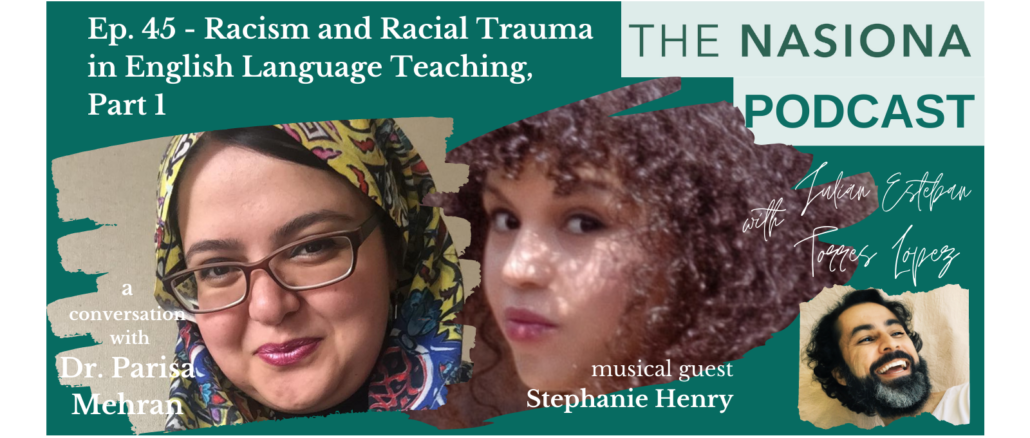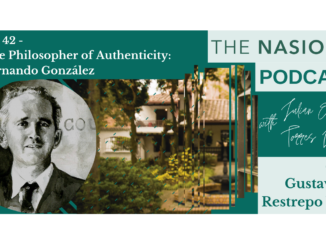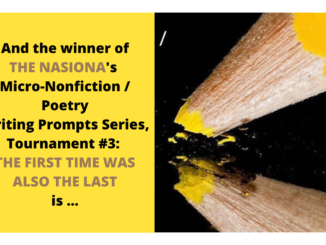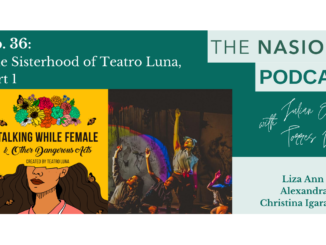
Listen to our 2-part conversation with Dr. Parisa Mehran on The Nasiona Podcast‘s episodes 45 “Racism and Racial Trauma in English Language Teaching, Part 1” & and episode 46 “‘You Look Like a Terrorist’ & Other Racial Traumas, Part 2,” which are both part of our Deconstructing Dominant Cultures Series.
You can also find our podcast episodes on Apple Podcasts, Spotify, iHeartRadio, Stitcher, or wherever you get your podcasts.
Episode 45 – Racism and Racial Trauma in English Language Teaching, Part 1
Today we discuss the intricate relationship between racism and English Language Teaching (ELT). We explore how white supremacy is at the heart of ELT and how the industry functions as a racist propaganda machine. We discuss how native-speakerism and passport privilege can be forms of racism. We also dissect how native-speakerism damages the profession of ELT, and what steps we can take to tackle, dismantle, and reconstruct. We also shine a light on some of the detrimental consequences of racism in ELT, such as racial abuse and its effects on mental health. The damage and trauma people of color suffer at the hands of the ELT industry is exactly why Dr. Parisa Mehran founded Women of Color in English Language Teaching (also known as WOC in ELT), to provide a healing space and a sisterhood within the Othering community that is ELT.
 Born and raised in Tehran, Parisa Mehran holds a BA in English Language and Literature, an MA in Teaching English as a Foreign Language (TEFL), both from Alzahra University, Tehran, Iran, and a PhD in Computer Assisted Language Learning (CALL) from Osaka University, Japan. She currently teaches part-time at several universities in Japan. Her passion for social justice has led her to engage in different English Language Teaching (ELT) movements for change and is now a racial equity advocate in ELT. Follow her advocacy on Twitter: @WOCinELT.
Born and raised in Tehran, Parisa Mehran holds a BA in English Language and Literature, an MA in Teaching English as a Foreign Language (TEFL), both from Alzahra University, Tehran, Iran, and a PhD in Computer Assisted Language Learning (CALL) from Osaka University, Japan. She currently teaches part-time at several universities in Japan. Her passion for social justice has led her to engage in different English Language Teaching (ELT) movements for change and is now a racial equity advocate in ELT. Follow her advocacy on Twitter: @WOCinELT.
Dr. Parisa Mehran and I spoke on July 18th of 2020. What follows is the first of my two-part conversation with Parisa. Make sure to tune in next week for the second part of the interview.
But before we jump into the conversation, Aïcha Martine Thiam and I introduce you to The Nasiona Music Series. We begin every episode by showcasing a BIPOC musical artist from our series, which you can explore at TheNasiona.com. Today’s musical guest is Stephanie Henry, and she performs her track “Nocturne in G Minor,” which you can find in The Nasiona‘s compilation BIPOC musical album, Volume 1: Petrichor. Want to be considered for our BIPOC Music Series? Go here to learn more.
MUSICAL GUEST
Stephanie Henry is a classically trained pianist and composer from Minneapolis, MN. She has performed with classical and theatrical ensembles, as well as with rock bands. She composed original works for film, musical theater, orchestras, quartets, and solo piano. Her music has been applauded for its originality and charismatic charm. She studied music at St. Olaf College and received her Master’s from Hamline University. Most recently, Stephanie was selected to compose a piece for White Snake Projects’ Sing Out Strong: Decolonized Voices. Stephanie is currently scoring music for a short film. Outside of composing and performing, Stephanie has maintained a piano studio where she teaches music to people of all ages. She currently lives in Burnsville, MN with her husband John and their two cats, Garfield and Simon.
HOST
Julián Esteban Torres López (he/him/his/él) is a bilingual, Colombia-born culture architect with Afro-Euro-Indigenous roots. For two decades, Julián has studied systems of oppression and has worked toward humanizing those who have been socially, politically, and geographically excluded from the hierarchies of power by centering, elevating, and amplifying their voices, experiences, and histories. He is the founder of the social justice storytelling organization The Nasiona, where he also hosts and produces The Nasiona Podcast. He’s a Pushcart Prize and Best Small Fictions nominee, a Trilogy Award in Short Fiction finalist, and the author of Marx’s Humanism and Its Limits and Reporting On Colombia. His work appears in PANK Magazine, Into the Void Magazine, The Acentos Review, among others. Julián holds a bachelor’s in philosophy and in communication and a master’s in justice studies from the University of New Hampshire and was a Ph.D. candidate at the University of British Columbia Okanagan, where he focused on political science and Latin American studies.
The Nasiona Podcast amplifies the voices and experiences of the marginalized, undervalued, overlooked, silenced, and forgotten, as well as gives you a glimpse into Othered worlds. We focus on stories that explore the spectrum of human experiences—stories based on facts, truth-seeking, human concerns, real events, and real people, with a personal touch. From liminal lives to the marginalized, and everything in between, we believe that the subjective can offer its own reality and reveal truths some facts can’t discover. Hosted, edited, and produced by Julián Esteban Torres López.
Please follow The Nasiona on Twitter, Instagram, and Facebook for regular updates: @TheNasiona
Thank you to Aïcha Martine Thiam for co-producing the Music Series component of the episode, and to Stephanie Henry for being our musical guest.
Original music for The Nasiona Podcast was produced by the Grammy Award-winning team of Joe Sparkman and Marcus Allen, aka The Heavyweights. Joe Sparkman: Twitter + Instagram. Marcus Allen: Twitter + Instagram.
The Nasiona Magazine and Podcast depend on voluntary contributions from readers and listeners like you. We hope the value of our work to our community is worth your patronage. If you like what we do, please show this by liking, rating, and reviewing us; buying or recommending our books; and by financially supporting our work either through The Nasiona’s Patreon page or through Julián Esteban Torres López‘s Ko-fi donation platform. Every little bit helps.
Thank you for listening and reading, and thank you for your support.





2 Trackbacks / Pingbacks
Comments are closed.